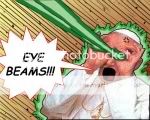The 12 Facets of the 1st Amendment
The religious freedom which the First Amendment protects has many facets:
1. No sectarian authority shares in the power of government nor sits in its councils.
2. Government has no directive influence in any of the affairs of any church.
3. Citizens are not taxed for the support of any religious institution and no church has any claim on any of the public revenues.
4. People can belong to any church they desire -- or to none at all; and no one is bound to have a ceremony such as marriage performed by any sectarian authority.
5. In disputes between sects or factions of a church over the management of church affairs the civil courts apply not the law applicable to secular affairs but the law that the governing bodies of the church have provided to govern their internal affairs.
6. Public schools are not proper agencies for religious education, though there is no constitutional reason why the state cannot adjust the schedules of the public schools to allow time for the students to get religious instruction elsewhere.
7. Parents and children have the privilege of patronizing private religious schools, rather than public ones, if they so desire.
8. An exercise or ritual may not be exacted by the state from an individual, if it runs counter to his religious convictions.
9. Religious liberty includes not only the conventional methods of worship but the unorthodox as well, such as distributing religious literature from door to door.
10. No license may be exacted by the state for the performance of any religious exercise nor a tax imposed on it.
11. Although the matter has not been authoritatively decided, it would seem that religious liberty extends to atheists as well as to theists, to those who find their religion in ethics and morality, rather than in a Supreme Being.
12. What may be pagan exercises to one person may be a devotional to another. In general it is no business of the government what rite or practice a person selects as a part of his religious beliefs; and he may not be punished for practicing or avowing it.
William O. Douglas, U.S. Supreme Court Justice (1939-1975)
1. No sectarian authority shares in the power of government nor sits in its councils.
2. Government has no directive influence in any of the affairs of any church.
3. Citizens are not taxed for the support of any religious institution and no church has any claim on any of the public revenues.
4. People can belong to any church they desire -- or to none at all; and no one is bound to have a ceremony such as marriage performed by any sectarian authority.
5. In disputes between sects or factions of a church over the management of church affairs the civil courts apply not the law applicable to secular affairs but the law that the governing bodies of the church have provided to govern their internal affairs.
6. Public schools are not proper agencies for religious education, though there is no constitutional reason why the state cannot adjust the schedules of the public schools to allow time for the students to get religious instruction elsewhere.
7. Parents and children have the privilege of patronizing private religious schools, rather than public ones, if they so desire.
8. An exercise or ritual may not be exacted by the state from an individual, if it runs counter to his religious convictions.
9. Religious liberty includes not only the conventional methods of worship but the unorthodox as well, such as distributing religious literature from door to door.
10. No license may be exacted by the state for the performance of any religious exercise nor a tax imposed on it.
11. Although the matter has not been authoritatively decided, it would seem that religious liberty extends to atheists as well as to theists, to those who find their religion in ethics and morality, rather than in a Supreme Being.
12. What may be pagan exercises to one person may be a devotional to another. In general it is no business of the government what rite or practice a person selects as a part of his religious beliefs; and he may not be punished for practicing or avowing it.
William O. Douglas, U.S. Supreme Court Justice (1939-1975)




























0 Comments:
Post a Comment
<< Home